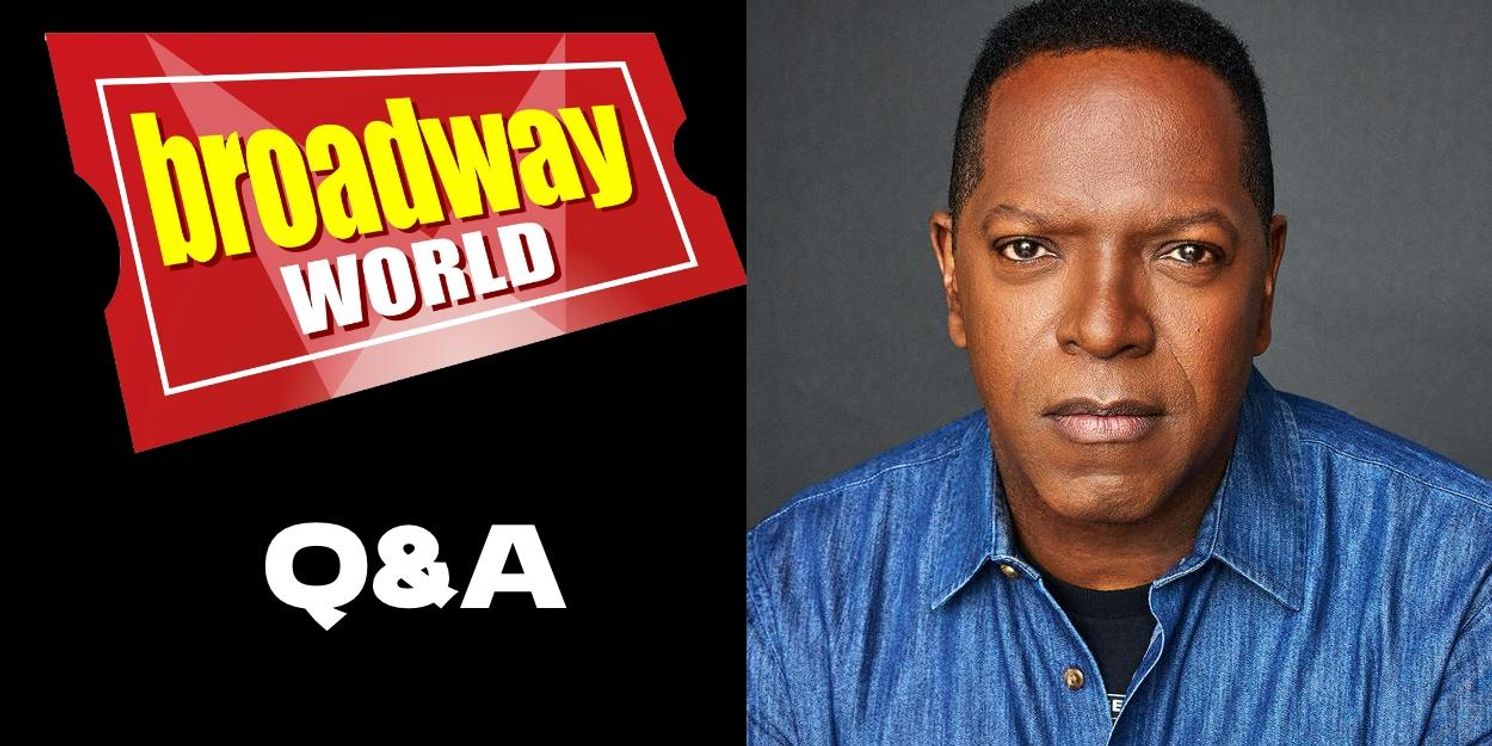BWW Q&A: James Vincent Meredith on NOISES OFF at Steppenwolf Theatre Company
We talk to James Vincent Meredith about NOISES OFF at Steppenwolf Theatre Company.

Steppenwolf Theatre Company, the nation’s premier ensemble theater company, is pleased to open its 49th season with a revival of Michael Frayn’s classic comedy Noises Off, directed by Tony Award-winning ensemble member Anna D. Shapiro (August: Osage County, The Minutes), presented in a co-production with Geffen Playhouse.
Noises Off plays through Sunday, November 3, 2024 in Steppenwolf’s Downstairs Theater, 1650 N. Halsted St. in Chicago.
Steppenwolf’s take on the funniest farce ever written features ensemble members Audrey Francis (The Thanksgiving Play, The Doppelgänger), Francis Guinan (Downstate, August: Osage County), Ora Jones (The Doppelgänger, The Brother/Sister Plays) and James Vincent Meredith (The Minutes, The Doppelgänger) with Vaneh Assadourian(Steppenwolf debut, Wish You Were Here), Amanda Fink (Pro-Am, POTUS u/s), Rick Holmes (Steppenwolf debut, Spamalot, Peter and the Starcatcher), Andrew Leeds (Steppenwolf debut, Bones, The Patient) and Max Stewart(Steppenwolf debut, Chicago Fire, Southern Gothic).
The cast and crew of Nothing On are scrambling to prepare for opening night, but despite their earnest efforts, the production is an absolute mess. Line flubs and lost props and missed cues, oh my! Can this beleaguered ensemble overcome egos and jealousies to pull the show together in time?
Onstage antics collide with offstage foibles in Steppenwolf’s production of Noises Off, the classic comedy that writes an ingenious, slapstick and zany tribute to “theatre people” everywhere. By the end of this dizzying play-within-a-play, you won’t know stage right from left.
James Vincent Meredith (Frederick Fellowes/Philip Brent) received critical acclaim as John Proctor in The Crucible, his first role as a Steppenwolf Theatre Company ensemble member. James has appeared at Steppenwolf in 19 productions over the years, most recently in: Describe the Night. Broadway credits include: The Book of Mormon (Eugene O’Neill-also national tour), The Minutes (Steppenwolf and also Studio 54) Skin of Our Teeth (LCT) and Superior Donuts (Music Box). Other Chicago theatre credits include work at Goodman, Lookingglass, Writers, Victory Gardens, Court and Chicago Shakespeare. Recent TV: Chicago Med (NBC), Your Honor (Showtime) FBI (CBS) and Fargo (FX).
You are no stranger to comedy, having appeared in both the Broadway production and National Tour of The Book of Mormon. What do you enjoy most about performing in a classic farce like Noises Off?
The timing of everything is so important, in that it really has to be precise for the show to work. And when we are clicking, the show has a rhythm to it—sound cues, lighting, doors slamming, entrances and exits, “getting the sardines on, getting the sardines off”. It’s fun when all of that comes together in that rhythm.
Tell us about your roles as Frederick Fellowes/Philip Brent in this play-within-a-play?
Frederick Fellowes is a kind, well meaning guy with a good heart. But his home life is in shambles, he’s prone to nosebleeds, hates violence, and is more than a bit clueless. In the play within a play, he’s playing Philip Brent, a highly successful British playwright, who with his wife Flavia, lives out of the country to avoid paying taxes.
The set, designed by Tony winner Todd Rosenthal (August: Osage County), is an essential component of the show. How would you describe it?
It’s cozy. An old, comfortable house where everything is a bit closer together than you’d think. For actors who have to move all over the place, sometimes at great speed, that economy of space is very helpful. With the Nothing On production being a bit of a lower budget affair, the furnishings are nice, but certainly not expensive. Oh, and doors. A lot of doors.
Director Anna D. Shapiro has said of the production, "If theater were an Olympic sport, our cast would easily win the gold." Talk a bit about the stamina involved in performing in the show.
Going up and down the stairs, constant entrances and exits, the middle act when the audience sees the backstage antics and so you’re never really off stage. Some of us definitely have it worse than others. But i know i get a good sweat in by the time we get to final curtain. There’s also the mental stamina of it. Again, the timing has to really be great, and a late cue or a mistimed door slam can throw a whole section off, so your mental focus is pretty taut from beginning to end.
Steppenwolf is known for its ensemble style of acting. How does that inform the process of bringing a production like this from the rehearsal room to the stage?
Early on, Anna stressed the importance of just getting out of the way of the play, that there really wasn’t much time to navel gaze. The play was going to require that we were all at the top of our game. So it kind of set the table to really focus not on our individual rhythms, but all of us pacing ourselves together to the rhythm of the play. For example, In order for a particular section to work, these 8 things on this particular page needed to happen, in a set order, at a set pace. So there was no really room for self, we were constantly working together to make sure those 8 things happened in the right order at the right pace. And then we’d go to the next page or section and do it all over again. You learn that the success of every section, moment, and bit in this play depends on multiple elements working together.
Videos

